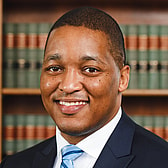Editor’s note: The following article is an op-ed, and the views expressed are the author’s own. Read more opinions on theGrio.
Oct. 17 marks the start of National Estate Planning Awareness Week, and although no one is comfortable discussing their mortality, the lack of preparation and planning has proven to have catastrophic and expensive consequences for the loved ones we leave behind, particularly in the Black community.
According to a recent report, an alarming 71% of Black Americans do not have a will. While the report noted that estate planning for African-Americans was up by 12 percent over 2020 numbers, still too few have a will or estate plan in place. Studies have shown that without an estate plan in place that details how you wish your assets to be distributed after your death, many families find themselves exposed to costly drawn-out legal battles leading to emotional trauma and crippling financial burdens.
We’ve all heard the horror stories. Rich or poor, when there is no will in place, turmoil isn’t too far behind. Even celebrities like Jamaican reggae artist Bob Marley and Queen of Soul Aretha Franklin have fallen victim to not having a viable estate plan in place before their deaths.
Two-time Grammy award-winning musician, Nipsey Hussle, lost his life unexpectedly at the age of 33 without having a will to distribute his assets and no documented guardians to watch over his two children. “Black Panther” star and fellow Howard University alumnus Chadwick Boseman passed away at 43 without a will, leaving part of his estate worth millions up to the courts to distribute. And in 2016, legendary musician Prince passed away without a will for his $156 million estate, resulting in vicious fighting among his heirs and, in turn, left the courts to determine how to disperse his assets. After six years, the legal battles over his estate finally came to an end in August.
The message is clear. The stakes are too high, especially for African Americans to ignore creating an estate plan. By 2047, trillions of dollars will be passed down to the next generation, however younger Black generations may not see a dime of it according to a recent analysis.
At the Essex County Surrogate’s Court, we are responsible for validating wills, which is referred to as probating wills. We also appoint administrators of assets or estates when a person dies without a will. However, as the Essex County surrogate, an elected position, I believe that my office’s most important duty is to educate communities,
particularly communities of color, on the necessity of having a will and other estate planning documents. My staff and I have witnessed firsthand the severe financial and emotional hardships that not having an estate plan can create for families, especially Black families who are already contending with economic inequity resulting from systemic racism. That is why we host webinars and participate in community events to educate the public on estate planning.
We get it. With the median wealth for Black families at a disappointing $24,100 in comparison to white families’ median wealth of $189,100, many Black families may believe that there isn’t much to pass along. However, no matter how big or small your assets may be, having a will may be the most important document that you ever write. There are many misconceptions that contribute to why so many African Americans are less likely to have a will. One notable myth is that estate planning is only for the wealthy or should be done later in life. The idea that one must have tremendous wealth in order to create a will or be elderly is simply untrue. There are DIY options for having a basic will written that are fairly reasonable and affordable for most people.
This week, we are asking you to make creating an estate plan a priority. Take the first step toward safeguarding the things you value in life, from your digital assets to personal and monetary possessions. It’s important to understand that when decisions are left in the hands of the courts to control, oftentimes it will not be in line with what you would want. If it’s worth something to you, it has value. Start with taking an inventory of your tangible and sentimental possessions. Consider what may be required to take care of your family’s needs, including financial, health care and child care needs. Review your beneficiaries often as unexpected life events may cause beneficiary changes or additions. For more complicated estates, contact an estate attorney to support your efforts.
History has shown that the legacy of structural inequality alone has allowed many Black Americans to lose land, homes and sentimental possessions after death. Not having a will in place almost guarantees a loss. Having one, however, is the key to protecting your assets and building needed generational wealth.

Alturrick Kenney has been a public servant for more than 20 years. On January 2nd, 2019, Mr. Kenney was sworn into his first term as the surrogate of Essex County in New Jersey. He and his staff work on probating wills, appointing administrators for those who die without a will of estates, qualifying trustees, and qualifying guardians of incapacitated persons.
TheGrio is FREE on your TV via Apple TV, Amazon Fire, Roku, and Android TV. Please download theGrio mobile apps today!


